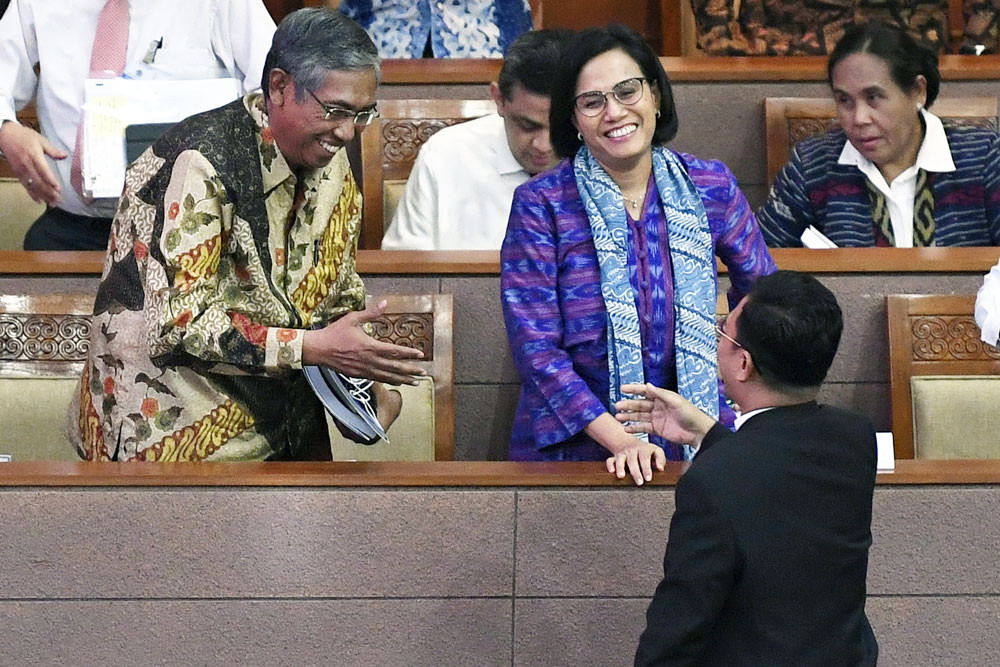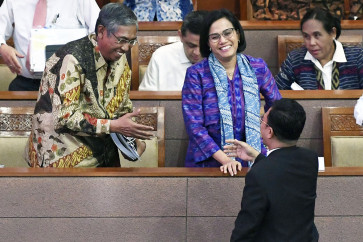Popular Reads
Top Results
Can't find what you're looking for?
View all search resultsPopular Reads
Top Results
Can't find what you're looking for?
View all search resultsImport duties can be alternative way to tax digital economy: Experts
Australia has imposed a general services tax (GST) on imported digital services and products since 2017 amid an absence of a global consensus on how to tax multinational digital companies.
Change text size
Gift Premium Articles
to Anyone
 Finance Minister Sri Mulyani Indrawati (center) talks to a legislator after presenting fiscal policy principles as part of the 2020 state budget in Jakarta on Sept. 24. The Finance Ministry is seeking an effective way to tax multinational digital companies amid the absence of a global consensus. (Antara/Puspa Perwitasari)
Finance Minister Sri Mulyani Indrawati (center) talks to a legislator after presenting fiscal policy principles as part of the 2020 state budget in Jakarta on Sept. 24. The Finance Ministry is seeking an effective way to tax multinational digital companies amid the absence of a global consensus. (Antara/Puspa Perwitasari)
W
hile most countries around the world are still waiting for a global consensus on how to more effectively collect taxes from multinational digital companies, a recent discussion held by a local think-tank shed light on alternative measures that could be taken to collect digital taxes.
One of the alternative ways to tax the world’s digital giants such as Facebook and Google is through the imposition of import duties for electronic transmissions.
Electronic transmissions, defined by the United Nations Conference on Trade and Development (UNCTAD) as the online delivery of digital products such as books, video games, music and films could act as an alternative measure for governments to collect revenue from the growing digital economy.
A 2019 UNCTAD study, which identified 49 products that could be purchased online in digital form, estimated that global transactions of digital goods totalled US$139 billion in 2017. The figure surpassed imports of the same products in physical form, which was recorded at $116 billion over the same period.
The World Trade Organization (WTO) had put a moratorium on countries imposing customs duties on imports of the intangible goods, a measure for which has been in place since 1998. The WTO’s general council is set to decide whether to extend or abolish the moratorium in December this year.
The study also found that developing countries could recover up to US$10 billion in lost revenue annually if they imposed tariffs on the transmission of the 49 intangible goods. It also estimated Indonesia could recoup around US$54.14 million annually should the tariffs on electronic transmissions be imposed.
With technologies such as 3D printing becoming more widely available, it is important for countries to have an agreement to regulate electronic transmissions as the landscape for traditional manufacturing processes could become heavily reliant on electronic transmissions, said UNCTAD senior economic affairs officer Rashmi Banga.

















